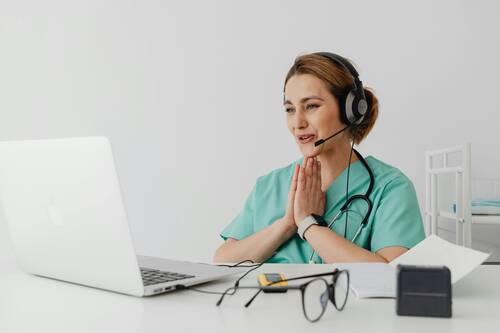If you or a a loved one who is in danger of suicide or has made a suicide attempt, make sure someone stays with that person. Call 911 or your local emergency number immediately. Call or text 988 or chat at 988lifeline.org.
Mental health treatment isn't one-size-fits-all. Just like physical health, mental well-being requires different levels of care based on individual needs. Some people benefit from weekly therapy sessions, while others need more structured support. Understanding these layers of care can make a world of difference. With the right support, individuals can find the balance that works for them. Whether facing mild anxiety or severe depression, there’s a level of care tailored to help each person achieve stability and resilience.
Mental Health Research / 29.10.2024
Intensive Short-Term Dynamic Psychotherapy: What to Expect in Treatment
If you or someone you know is struggling or in crisis, help is available.
Call or text 988 or chat at org.
Have you ever felt stuck in therapy, making slow progress, or none at all? You're not alone. Many people find traditional long-term therapy frustrating or ineffective.
That's where intensive short-term dynamic psychotherapy (ISTDP) comes in. This innovative approach aims to speed up the therapeutic process and produce lasting change in a shorter time frame.
In this article, we'll explore what intensive short-term dynamic psychotherapy is, how it works, and what you can expect if you decide to try this treatment. We'll cover the basics, dive into the theory behind it, and give you a clear picture of what an ISTDP session might look like.
What is Intensive Short-Term Dynamic Psychotherapy?
Intensive short-term dynamic psychotherapy, often abbreviated as ISTDP, is a form of psychotherapy developed by Dr. Habib Davanloo in the 1960s. It's designed to help people quickly identify and resolve emotional issues that may be causing psychological distress or interfering with their daily lives. (more…)
Mental Health Research, Telemedicine / 28.10.2024
The Value of Online Therapy
If you or someone you know is struggling or in crisis, help is available. Call or text 988 or chat at org. To learn how to get support for mental health, drug or alcohol conditions, visit FindSupport.gov.
As mental health care becomes more accessible, many people are now considering whether virtual counseling can offer the same benefits as face-to-face therapy. The question arises: does online counseling provide the same depth of connection and understanding as traditional therapy? In today’s fast-paced world, many individuals are seeking more convenient ways to access mental health services. As a result, virtual sessions are becoming an increasingly popular option.
When comparing the two approaches, it's important to assess whether virtual counseling can truly replicate the in-person experience. Services like The Collective Therapy & Wellness provide virtual therapy, making mental health support easier to access for a wider audience. The flexibility of scheduling and the comfort of attending sessions from home have their unique appeal.
(more…)
Common Issues with Relationships
A relationship can sometimes become overwhelming to maintain. While every couple experiences struggles, certain issues may indicate that professional help could be beneficial. Recognizing these signs early on can provide a couple with a better opportunity to invest in healthier communication and strengthen their relationship with one another. Here are some key indicators that it might be time to seek couples counseling:Communication Breakdown
One of the most common indicators that it's time to arrange couples therapy is communication dysfunction. When partners struggle to communicate without raising their voices, becoming defensive, feeling unheard, or experiencing escalating frustration, these are clear signs that assistance is needed. Strong communication is a vital component of a healthy relationship. If discussions frequently devolve into arguments or silence, couples counseling in Denver can offer techniques to enhance communication skills and foster a better understanding between partners. (more…)
Mental Health Research / 11.09.2024
Relationship Counseling in Chicago
Maintaining healthy and fulfilling relationships can be challenging, especially in the fast-paced environment of a bustling city like Chicago. Relationship Counseling Chicago can be a valuable resource for couples and individuals alike, offering professional guidance to overcome challenges, improve communication, and rebuild trust. At our counseling center, we believe that every relationship deserves the opportunity to thrive. Our goal is to provide expert care to help couples and individuals navigate their unique emotional landscapes.
Why Choose Relationship Counseling?
Couples and individuals face a variety of modern pressures. From balancing busy work schedules to managing financial stresses, relationship strains often arise from external factors that can feel overwhelming. The decision to seek relationship counseling is a positive step toward emotional healing and growth. We offer a unique understanding of the challenges that urban life can place on relationships, providing a tailored approach that is both empathetic and effective.
(more…)
Education, Mental Health Research / 09.08.2024
Tips for Choosing the Right Online Counseling Program
Choosing the right online counseling program is crucial for those aiming to build a successful career in mental health services. With the rise of online education, there are numerous options available, each offering different specializations, formats, and support structures. The key is to select a program that not only meets educational standards but also aligns with your career goals and learning style. This part of the article will guide you through understanding accreditation, aligning the program with your career goals, assessing program flexibility, and evaluating faculty expertise.
(more…)
Counseling stands as a pivotal element in the sphere of mental health and personal development. Its impact stretches far beyond the confines of therapy rooms, influencing numerous aspects of everyday life and societal well-being. At the heart of effective counseling lies a strong commitment to research, which serves as the backbone for developing, refining, and validating therapeutic methods. Research ensures that counseling practices are not just based on theoretical knowledge or subjective experience but are grounded in scientifically proven techniques that offer real benefits to clients. In this blog, we will share insights into how research enriches the counseling profession, enhancing outcomes for both counselors and their clients.
(more…)
Living with a phobia forces you to resign to a life of worrying about a certain object or situation that...
Education, Mental Health Research / 23.02.2021
An Online Masters in Mental Health Counseling: The Basics
Perhaps you are considering a career change or want to take the next steps in your counseling career journey. A masters in mental health counseling online could be the perfect way to help you achieve these goals. Becoming a mental health counselor is a very rewarding yet demanding job, and you will need many different skills, both technical and personal, in order to succeed. If you love working with and helping people, becoming a mental health counselor may be the perfect career choice for you. Here are a couple of basics about studying online for a masters in mental health counseling.
What is a masters in mental health counseling online degree?
Undertaking a masters in mental health counseling online can help you on your journey to becoming a fully licensed mental health counselor. It is a masters degree that is taught through a mixture of in-person fieldwork and online course work. A masters in mental health counseling online prepares you for the various licensing exams you will need to take in order to progress into the next stage of your career. The majority of positions and jobs within mental health counseling require a masters as a minimum, so a masters in mental health counseling online is a great first step in pursuing this career path.
(more…)
Author Interviews, Cancer Research, Dermatology, Environmental Risks, JAMA, Melanoma / 23.03.2018
USPSTF: Behavioral Counseling of Children and Teens to Prevent Skin Cancer Recommended
MedicalResearch.com Interview with:
John W. Epling, Jr., M.D., M.S.Ed., Task Force Member
Dr. Epling is is a professor of Family and Community Medicine at the Virginia Tech Carilion School of Medicine in Roanoke, VA. He is also the Medical Director of Research for Family and Community Medicine, Medical Director of Employee Health and Wellness for the Carilion Clinic, and maintains an active clinical primary care practice.
MedicalResearch.com: What is the background for this study? What are the main findings?
Response: Skin cancer is the most common type of cancer in the U.S., affecting millions of people every year. The Task Force looked at the latest research to see if clinicians can help people prevent skin cancer by providing counseling about ways to reduce risk, including using sunscreen, wearing protective clothing, and avoiding sunlight during peak hours.
Based on our review of the evidence, we found that counseling younger patients with a fair skin type and their parents is effective at encouraging these sun protective behaviors. By helping reduce their patients’ exposure to harmful UV rays, clinicians can decrease their risk for skin cancer. As such, we recommend that clinicians provide counseling to people who are six months to 24 years old and have a fair skin type. For adults over 24 with a fair skin type, clinicians should consider the individual’s risks for skin cancer when deciding whether or not to provide counseling. (more…)









